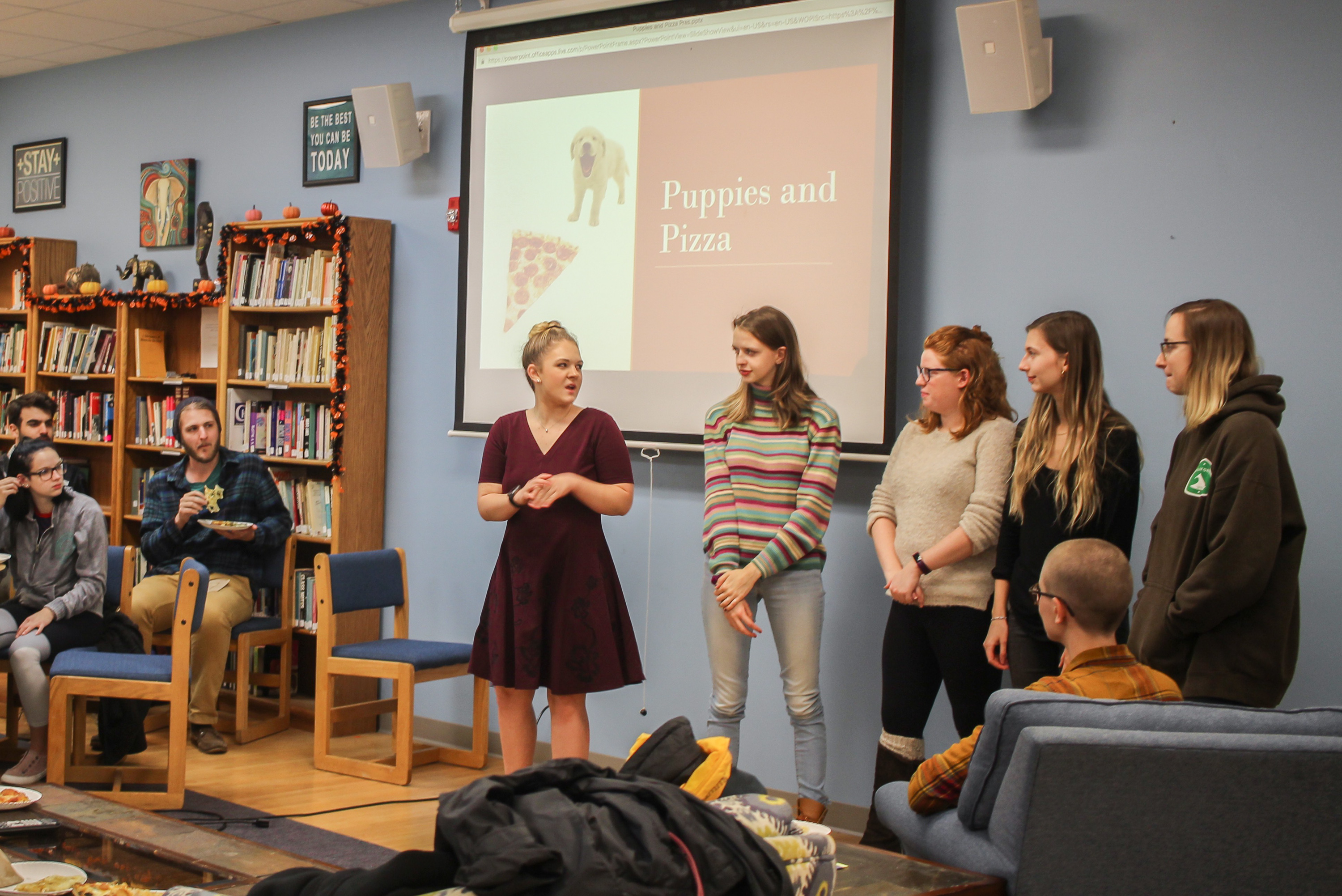The board members of People for Animal Welfare (PAW) introduced the event.
Photo by Allegra Taylor.
On Thursday, Oct. 11, People for Animal Welfare (PAW) held its event “Puppies and Pizza” in the Diversity Center. The popular event welcomed dozens of students to relax and eat pizza while a service dog trainer with Custom Canines Service Dog Academy, junior Claire Zimmerman, presented info on her work with the training program.
The presentation covered common questions students might have, such as the difference between a service dog, a therapy dog and an emotional support dog. According to Zimmerman, service dogs are trained in order to provide a service to a person and must pass the Canine Good Citizen Test and the Public Access Test in order to become certified. They’re also allowed in almost any facility according to the laws of the ADA.
Therapy dogs, on the other hand, are trained to go into areas they might be needed—such as hospitals or schools—in order to alleviate stress by providing comfort to people. They require permission to have access to places dogs would normally be prohibited and must wear special identifying gear.
Emotional support dogs are owned by individuals and are allowed in residences that might otherwise have a no pets policy. They provide emotional comfort to their owners.
In addition to these distinctions, Zimmerman also addressed some common misconceptions surrounding service dogs. She emphasized that while some might think that service dogs are overworked or don’t have fun being regular dogs, the opposite is true. According to Zimmerman, it’s clear that the dogs enjoy doing such rewarding work, and they get to spend all day with their trainer and experience all kinds of new things.
Zimmerman also emphasized that any breed of dog can be a service dog.
Zimmerman said, “Any dog that’s donated to Custom Canines is used for service, the only restriction is the job they do. So small dogs can still make great PTSD service dogs even though they may not be able to be seeing eye dogs necessarily.”
Zimmerman went on to talk about service dog training specifically as it relates to Lawrence. Since college campuses make very good locations for training service dogs, Custom Canines works directly with students to train dogs on campus. Currently, Zimmerman is the only active trainer at Lawrence, but the program is always open to more dedicated individuals who might be interested in contributing their time in a meaningful way.
While Zimmerman said interested students could talk to her, she stressed that service dog training is by no means an easy job. The job is a huge commitment, as a trainer is always working with their dog to teach them the necessary techniques. It also can be a major financial investment, since Custom Canines works on a volunteer basis and trainers are responsible for their own expenses for things like food, toys and sometimes vet bills.
“If there’s ever an emergency with the dog, you have to drop everything and make sure they’re ok, regardless of prior commitments. Obviously there are daily responsibilities like getting their energy out, regular meals, taking them out, daily training, grooming and teeth cleaning.”
Zimmerman also said that one of the most difficult parts of training is returning the dog to the organization at the end of the training period.
“You put so much work into them and see them grow and you get to bond with them for extended periods of time, but at the end of the day you still have to give them back even though you’ve poured so much of your love into them.”

